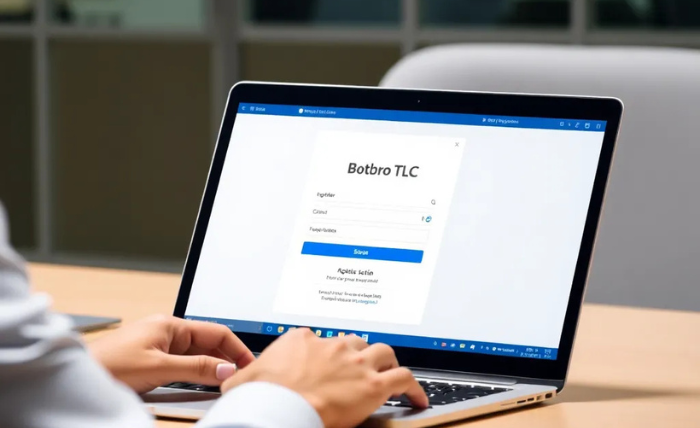Table of Contents
- The Rise of Professional Employer Organizations (PEOs)
- Core Functions of PEOs for Small Businesses
- How PEOs Optimize HR Operations
- Cost-Saving Opportunities Through PEO Partnerships
- Boosting Employee Satisfaction and Retention
- Legal Compliance and Risk Mitigation Made Easier
- Key Considerations When Choosing a PEO
- Conclusion
The Rise of Professional Employer Organizations (PEOs)
In today’s fast-paced business environment, small businesses grapple with numerous workforce management challenges. Rapid growth, shifting labor regulations at both the federal and state levels, and evolving employee expectations are fundamentally altering the landscape for small employers. Even savvy entrepreneurs with strong leadership skills can find the extensive HR responsibilities overwhelming. Tasks such as managing compliance, handling personnel issues, and adhering to best practices can divert attention from innovation and primary business objectives. As the business world becomes more competitive, operational efficiency becomes not only a priority but a necessity for survival and success.
This is where Professional Employer Organizations (PEOs) step in as invaluable strategic partners for small businesses. By allying with a PEO, small organizations gain access to robust HR solutions and resources typically found only at much larger firms. Curious about how it works? PEOs operate as co-employers, assuming responsibility for essential HR functions, including payroll, benefits, regulatory compliance, and risk management. This partnership enables business owners to refocus on their core activities: driving growth, delivering exceptional customer service, and nurturing their teams. Instead of struggling with administrative chaos, owners gain peace of mind and create stronger, more competitive companies with the support of seasoned HR professionals.
Core Functions of PEOs for Small Businesses
Payroll Management
Managing payroll is a complex endeavor, fraught with potential pitfalls for small businesses that are unfamiliar with the evolving tax and labor laws. PEOs relieve business owners of this burden by taking over the entire payroll process. They ensure that employees are paid accurately and on time, calculate and withhold the correct taxes, and handle federal and state tax filings to prevent costly mistakes and late penalties. Their automated systems also help manage direct deposits, wage garnishments, and payroll expenses, ensuring accuracy and compliance while freeing business owners to focus on higher-value initiatives.
Employee Benefits Administration
Attracting and retaining top talent hinges on providing compelling benefits packages. PEOs negotiate and administer comprehensive offerings that often include major medical and dental insurance, retirement savings plans such as 401(k) plans, life and disability insurance, and options for vision care, flexible spending accounts, and wellness programs. With their network and expertise, PEOs can offer small businesses access to group insurance plans and retirement solutions at more competitive rates. Employees benefit from plans typically reserved for larger organizations, which increases their satisfaction and sense of security.
Risk and Compliance Support
Compliance errors can result in severe fines, lawsuits, or even business closure. PEOs dedicate entire teams to staying ahead of shifting federal, state, and local employment laws, as well as OSHA safety regulations and workers’ compensation requirements. They proactively monitor legal updates and develop compliance strategies tailored to each client, shielding small businesses from the threat of unexpected liabilities. Support can include workplace safety programs, harassment prevention training, and the development of policies that withstand regulatory scrutiny.
How PEOs Optimize HR Operations
Reducing Administrative Burden for Business Owners
Business owners partnering with a PEO can dramatically reduce the time and energy spent on HR paperwork, policy updates, and problem resolution. From managing leave requests and onboarding new hires to tracking performance and offboarding employees, PEOs handle the daily HR tasks. This operational relief enables owners and managers to shift their focus from administrative details to building relationships with customers, driving sales, and strategic planning—ultimately leading to better business outcomes and greater satisfaction for everyone involved.
Examples of PEO-Driven Efficiencies
Many PEOs offer user-friendly HR portals that centralize key functions, including digital onboarding, automated time tracking, performance review management, and payroll processing. These platforms reduce the need for paper-based processes, helping companies avoid expensive software investments. By offering dedicated HR support and advanced technology tools, PEOs empower small businesses to operate more efficiently, remain compliant, and adapt quickly to workforce changes without hiring additional HR staff or IT professionals.
Cost-Saving Opportunities Through PEO Partnerships
Economies of Scale in Benefits and Insurance
One significant advantage of working with PEOs is their ability to pool thousands of employees across various clients, thereby generating substantial purchasing power. This leverage allows them to negotiate superior rates for medical, dental, and vision insurance, as well as other group benefits and workers’ compensation coverage. Small businesses gain access to plans that are normally out of reach due to budget limitations. These savings translate into lower costs for both employers and employees, making businesses more competitive in talent acquisition and retention.
Comparing In-house Versus Outsourced HR Costs
Building a dedicated HR department is cost-prohibitive for most small businesses. Salaries, benefits, training, and HR management software can add up quickly. Outsourcing these services to a PEO means predictable monthly fees that often prove more affordable than hiring in-house staff. PEOs also help businesses avoid costly compliance mistakes, which can result in expensive penalties or litigation. Thus, PEOs provide peace of mind and cost certainty, enabling business owners to allocate resources more effectively to areas that drive growth.
Boosting Employee Satisfaction and Retention
Access to Competitive Benefits Packages
PEOs enable small organizations to offer benefits such as high-quality health, vision, and dental insurance, as well as 401(k) and other retirement plans. This level of benefits helps small businesses compete with larger firms when recruiting top-performing candidates. Employees feel valued and secure when they see their employer investing in their health and future, which can elevate morale and foster a more positive corporate culture.
Improved Workplace Support Structures
Beyond benefits, PEOs enhance workplace satisfaction by implementing policies and infrastructures that support employees. This includes distributing employee handbooks, enforcing fair workplace conduct, establishing dispute resolution mechanisms, and making training resources and career development programs easily accessible. The result is a supportive, transparent, and well-structured environment that motivates employees to excel.
Legal Compliance and Risk Mitigation Made Easier
Changing Labor Laws and Regulations
Labor and employment regulations are constantly evolving due to legislative changes, court rulings, and shifts in public policy. PEOs invest in compliance expertise to help their clients quickly adapt to new rules, such as changes in minimum wage, overtime provisions, or workplace safety requirements. With their guidance, small businesses remain agile, avoiding potentially damaging legal missteps.
Shared Liability and Compliance Assurance
One of the unique features of the PEO relationship is shared liability. As co-employers, PEOs assume some legal responsibility for payroll tax filings, workers’ compensation, unemployment claims, and employee documentation. This shared accountability dramatically reduces the risks that small businesses typically face alone.
Key Considerations When Choosing a PEO
Assessing Organizational Fit
Not every PEO is a perfect match for every business. It’s crucial to evaluate how well the PEO’s offerings, values, and technological tools align with your company’s specific needs and culture. Look for a provider with proven experience supporting businesses of a similar size, sector, and geographic footprint. The right cultural fit can significantly enhance the effectiveness of the partnership and ensure long-term success.
Questions to Ask Potential Providers
- What services are included in your base fee?
- How do you tailor solutions for small businesses?
- What experience do you have in my industry?
- How do you manage ongoing communication and support?
Conclusion
Partnering with a PEO enables small businesses to thrive in an ever-changing, often challenging landscape. From efficient HR management and competitive benefits to comprehensive compliance support and risk mitigation, PEOs serve as indispensable allies for business owners seeking to streamline operations and foster growth. Exploring a partnership with a PEO may be the strategic advantage your business needs to unlock new heights of success and sustainability in the modern market.







